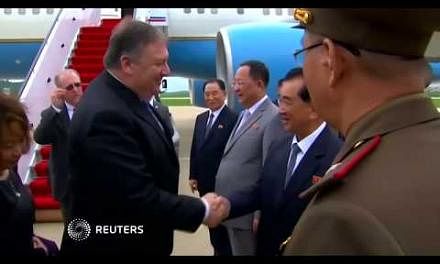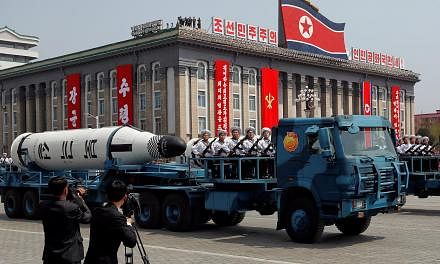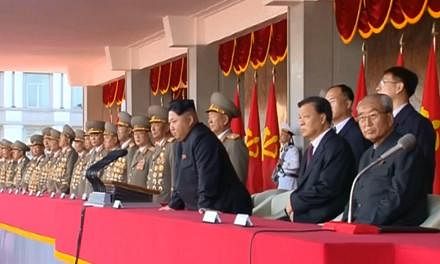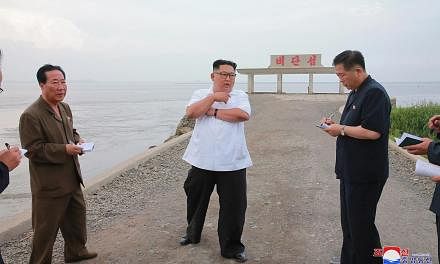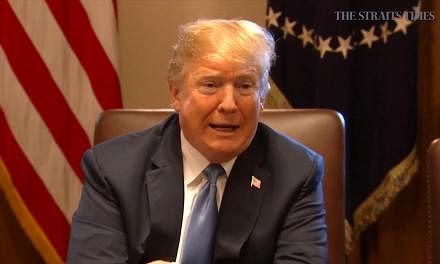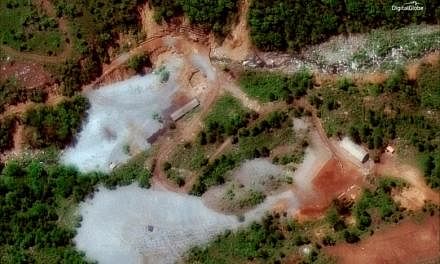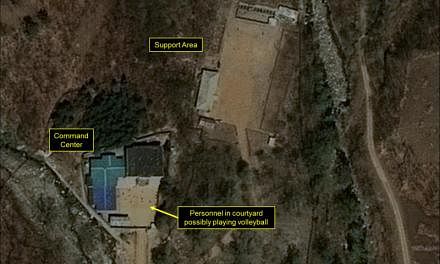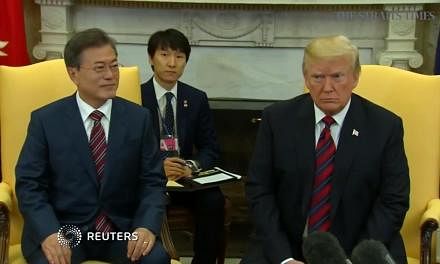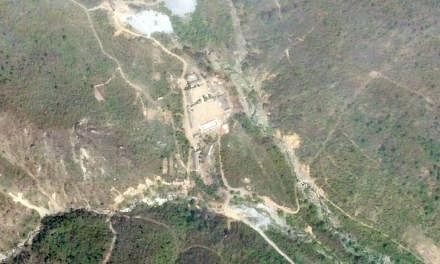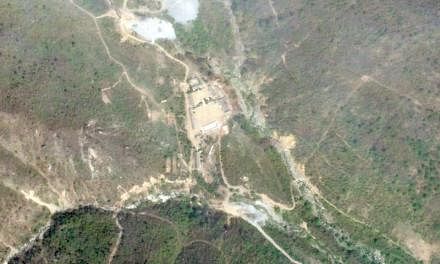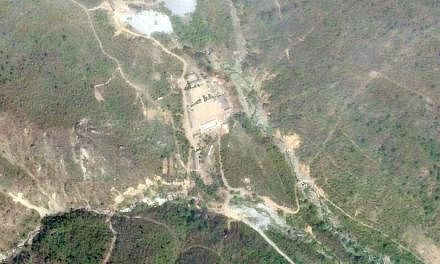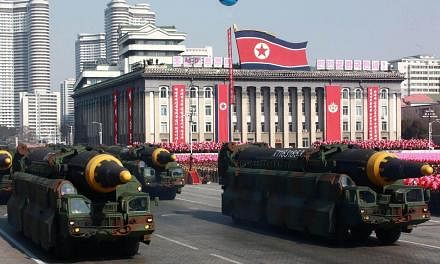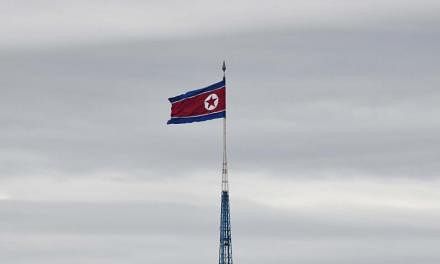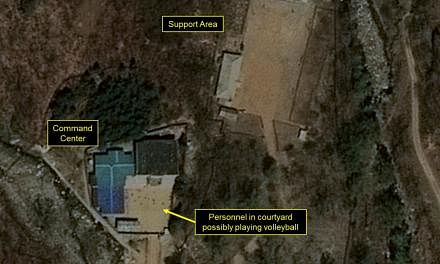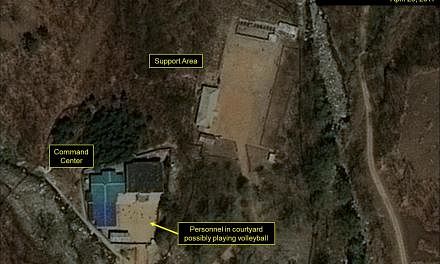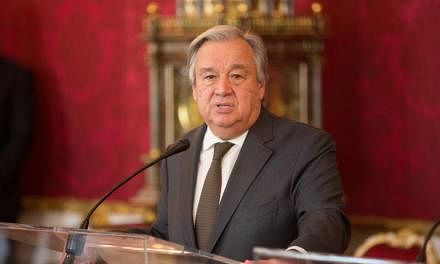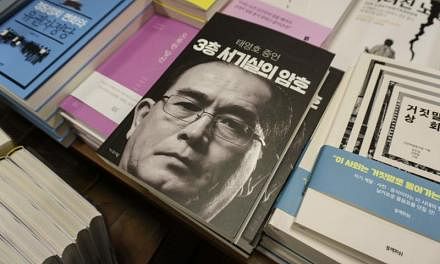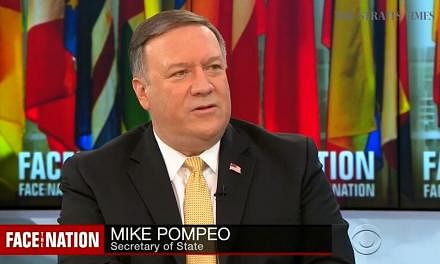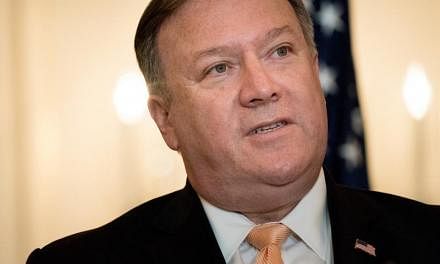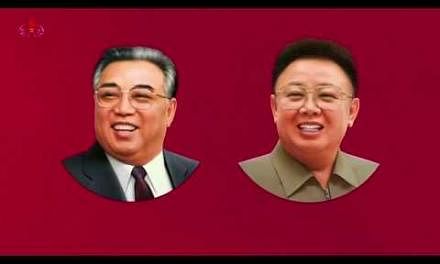BEIJING (NYTIMES) - What the Chinese call the Friendship Pipeline runs for 20 miles, crossing under the Yalu River and spanning the border between North Korea and China. For more than half a century, it has been both a symbol of the two nations' alliance and a lifeline for the North's economy.
Now, in response to North Korea's latest and most powerful nuclear test, the Trump administration is expected to press China to impose an oil embargo on the North, cutting off the flow of petroleum through the pipeline and on tankers, too.
The United States has called for similar measures before, and Beijing has almost always refused.
But no previous US administration has pressed the case as an implicit choice between cutting off the fuel and potential military action.
That puts President Xi Jinping of China in a particularly difficult position. With an important Communist Party leadership conference next month (October), he will not want to look weak in the face of US pressure. But a destabilising war on the Korean Peninsula would be even less welcome.
"Xi cannot afford to look like he is caving in under US pressure," said international relations professor Zhang Baohui at Lingnan University in Hong Kong. "He needs something back from the US to make the Chinese cooperation less costly to its image and geopolitical interests."
Prof Zhang said that if Mr Trump agreed to a version of a strategy proposed by China to ease the crisis - a freeze of the North's nuclear programme in exchange for suspending joint US-South Korean military exercises - then Mr Xi might be more amenable to an oil cutoff.
But while Secretary of State Rex Tillerson and Defence Secretary James Mattis have raised the possibility of a diplomatic resolution, Mr Trump has expressed little interest in talking to the North. "Talking is not the answer," the President recently said on Twitter.
On Tuesday (Sept 5), a North Korean diplomat hinted that more nuclear or missile tests were in store, promising what he called "more gift packages" for the US. The diplomat, Mr Han Tae Song, said at a United Nations disarmament conference in Geneva that "pressures or sanctions will never work" on the North.
China fears that putting too much pressure on North Korea could bring down the government of its leader Kim Jong Un, perhaps resulting in large numbers of refugees crossing into China and leaving a US ally, South Korea, on its border.
While Beijing often criticises the North for its missile tests and nuclear detonations, it keeps the isolated country's economy alive with exports of energy, mainly crude oil.
China cut off oil supplies to North Korea for three days in 2003, after the North fired a missile into waters near Japan. The Chinese government told Pyongyang that the suspension was necessary for technical reasons, diplomats in Beijing said at the time.
But that was a rare exception to China's usual policy. While Mr Xi has been willing to impose some minor restrictions on China's energy supplies to North Korea, he has shown no signs of curbing the vital crude oil that keeps the North afloat.
How much crude China sends through the Friendship Pipeline - which starts in Dandong, a trading hub in northeastern China, and travels under the Yalu River into North Korea - is not precisely known. China stopped reporting those figures several years ago.
But given its recent economic growth, North Korea would be expected to import about 850,000 tons of crude oil this year, almost entirely from China, said Mr Peter Hayes, the director of the Nautilus Institute, a think tank specialising in North Korean energy. Some other experts estimate a slightly lower amount - about 750,000 tons - for the year.
Either figure would seem to reflect a substantial increase from a few years ago, though it is hard to be certain.
In 2015, the China National Petroleum Corp, which operates the pipeline to the North, said that the amount of oil sent through it had been kept at 520,000 tons. And China did report vastly reduced supplies of motor and aviation fuel to North Korea in July - 92 per cent less than the July 2016 value, according to the General Administration of Customs.
Even if China did cut off crude oil supplies, North Korea - particularly its military - would be able to operate for a while, Mr Hayes said.
The military, which he said uses about a third of the country's imported oil, has enough stockpiles for "a year of routine, non-wartime usage - could be more, doubt it would be less".
The military could fight for a month before running out of fuel, Mr Hayes said.
The brunt of a fuel cutoff would be felt by ordinary North Koreans, who would be "forced to walk or not move at all", he said. "There will be less light in households due to less kerosene."
The North Korean government already uses charcoal to make fuel for vehicles, Mr Hayes said, so a side effect of an oil embargo could be more deforestation in the countryside as trees are felled to produce charcoal. That could lead to further erosion, floods and the potential for famine.
An embargo would also reduce the supply of diesel used by farmers to pump water for rice fields and to process crops into food, Mr Hayes said.
Mr Cheng Xiaohe, a Korea analyst at Renmin University, said that a decision by China to cut off oil to the North would signal a willingness to tolerate instability around Mr Kim's government - a course that Mr Cheng doubted the Chinese leader would take.
"At the top, the North is not unified," he said. "There are factions."
The Global Times, a nationalist Chinese tabloid that sometimes reflects the thinking of the country's leadership, said on Monday in an editorial that "we should avoid resorting to rash and extreme means by imposing a full embargo on North Korea".
A few months ago, the paper said an oil embargo was worth considering if North Korea detonated a sixth nuclear weapon, as it did on Sunday.
The editorial said that cutting off crude oil would lead to a conflict between China and North Korea and still fail to halt the North's nuclear weapons programme.
Besides the political considerations that China must weigh in considering an oil embargo, there are also practical concerns. China National Petroleum has said that stopping the flow of oil through the Friendship Pipeline might damage the pipeline.
In 2011, engineers for the company wrote that wax in the crude oil could build up and block the pipe if the flow were stopped. They said it was safe to stop the flow for eight hours at most during summer, and for no more than two hours during winter.
Mr Hayes said that China was unlikely to agree to an oil cutoff, however strained its relationship with the North has become. "That would reduce whatever influence the Chinese have left in Pyongyang," he said.
